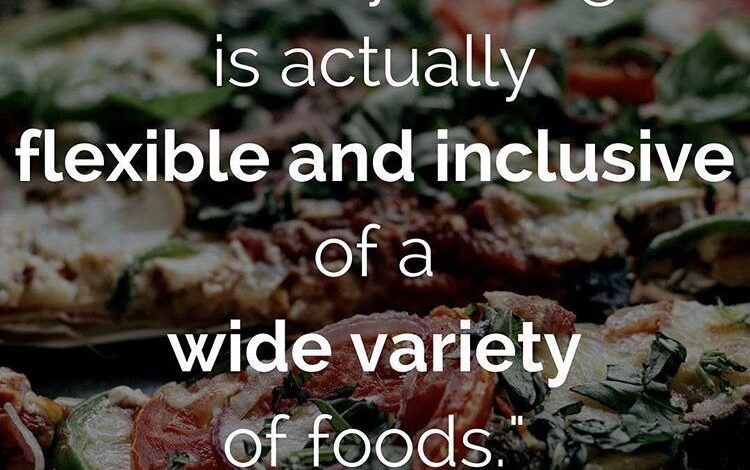Intuitive Eating & Body Positivity

Intuitive Eating & Body Positivity: Reclaiming Your Relationship with Food and Yourself
In a world saturated with diet culture, restrictive eating plans, and unrealistic beauty standards, it’s easy to feel disconnected from our bodies and confused about what truly nourishes us. Many of us have spent years battling food guilt, obsessing over calories, and striving for an unattainable ideal. But there’s another way – a path towards freedom, joy, and genuine well-being: Intuitive Eating and Body Positivity.
This isn’t just another fleeting trend; it’s a powerful philosophy rooted in honoring your body’s innate wisdom. Let’s delve into what Intuitive Eating and Body Positivity are, why they matter, and how you can begin to cultivate these practices for a healthier, happier relationship with food and yourself.
What is Intuitive Eating?
Intuitive Eating (IE) isn’t about dieting. It’s the opposite, actually! Developed by registered dietitians Evelyn Tribole and Elyse Resch, IE is a framework built on 10 principles designed to help you reconnect with your body’s natural hunger and fullness cues, breaking free from restrictive diets and disordered eating patterns. It’s about trusting your internal signals – those subtle whispers that tell you when you’re hungry, what kind of food you crave, and when you’re satisfied.
The 10 Principles of Intuitive Eating:
- Reject the Diet Mentality: This is the foundational principle. Recognizing that diets don’t work long-term and often lead to a cycle of restriction and binging, you actively dismantle your belief in their effectiveness.
- Honor Your Hunger: Learn to recognize early hunger cues (like slight grumbling or feeling distracted) and respond by eating something satisfying. Ignoring hunger leads to overeating later.
- Make Peace with Food: Remove the moral judgments around food – “good” vs. “bad,” “healthy” vs. “unhealthy.” All foods can fit into a balanced approach when eaten mindfully.
- Challenge Food Guilt and Shame: Guilt and shame only exacerbate disordered eating patterns. Practice self-compassion and recognize that enjoying food is not inherently wrong.
- Discover the Satisfaction Factor: Eating should be pleasurable! Choose foods you genuinely enjoy, savor each bite, and create a positive experience around meals.
- Respect Your Fullness: Learn to recognize when you’re comfortably full – not stuffed, but satisfied. Stop eating before you reach that point of discomfort.
- Cope with Emotions Without Using Food: Learn healthy coping mechanisms for stress, sadness, boredom, and other emotions besides turning to food.
- Respect Your Body: Accept your body as it is right now – a vessel for experiencing life. This doesn’t mean you can’t strive for health, but doing so from a place of self-acceptance and respect.
- Movement—Feel the Difference: Focus on how movement *feels* rather than burning calories or achieving a certain aesthetic result. Find activities you enjoy that energize and nourish your body.
- Honor Your Health—Gentle Nutrition: Make food choices that support overall health and well-being while still honoring your preferences and enjoyment of food. This isn’t about perfection; it’s about balance.
What is Body Positivity?
Body Positivity goes hand in hand with Intuitive Eating, though they are distinct concepts. It’s a movement that challenges societal beauty standards and promotes acceptance and appreciation of all bodies, regardless of size, shape, color, or ability. It’s about recognizing the inherent worth of every body – yours included.

Key Aspects of Body Positivity:
- Challenging Beauty Standards: Recognizing that beauty is subjective and not defined by narrow societal ideals often perpetuated in media.
- Self-Acceptance: Embracing your body as it is, with its perceived imperfections, and cultivating self-compassion.
- Celebrating Diversity: Acknowledging and valuing the wide range of body types, shapes, sizes, abilities, and appearances that exist.
- Rejecting Diet Culture: Recognizing how diet culture harms individuals and communities by promoting unrealistic standards and perpetuating shame around bodies.
The Synergy of Intuitive Eating and Body Positivity
These two philosophies are incredibly powerful when combined. Intuitive Eating provides the practical tools to heal your relationship with food, while Body Positivity helps you cultivate self-acceptance and challenge societal pressures that influence how you view yourself.
How they work together:
- Intuitive Eating addresses *behavior*: It focuses on rebuilding trust in your body’s signals.
- Body Positivity addresses *beliefs*: It challenges the negative self-talk and societal messages that fuel food shame and body dissatisfaction.
Getting Started: Practical Steps
Embarking on this journey takes time, patience, and self-compassion. Here are some steps to get you started:
- Start with Awareness: Pay attention to your hunger cues throughout the day. When do they arise? What do they feel like?
- Challenge Your Food Rules: Identify any rigid rules or beliefs you have about food (e.g., “I can’t eat dessert,” “Carbs are bad”). Gently challenge these beliefs and experiment with giving yourself permission to enjoy those foods without guilt.
- Practice Self-Compassion: Treat yourself with the same kindness and understanding you would offer a friend struggling with similar issues.
- Limit Exposure to Diet Culture: Unfollow accounts that promote unrealistic body standards or diet fads. Curate your social media feed to include diverse bodies and positive messages.
- Focus on Non-Appearance Goals: Shift your focus from weight loss or achieving a certain look to health-promoting behaviors like feeling energized, having more stamina, and enjoying food.
- Seek Professional Support: If you have a history of disordered eating or find the process overwhelming, consider working with a registered dietitian specializing in Intuitive Eating or a therapist who understands body image issues.
Benefits Beyond Weight Loss
While not a weight-loss strategy, Intuitive Eating and Body Positivity offer a multitude of benefits that extend far beyond appearance:
- Improved Mental Health: Reduced anxiety, depression, and food-related guilt.
- Increased Energy Levels: Consistent nourishment based on your body’s needs leads to more stable energy levels throughout the day.
- Better Relationship with Food: Enjoyment of meals without shame or restriction.
- Enhanced Self-Esteem and Body Image: Increased self-acceptance and appreciation for your unique body.
- Freedom from Diet Cycle: Breaking free from the endless cycle of dieting, restricting, and binging.
Conclusion:
Intuitive Eating and Body Positivity are not quick fixes, but a lifelong journey towards greater well-being. By honoring your body’s wisdom and challenging societal pressures, you can cultivate a healthier relationship with food, yourself, and the world around you. It’s about reclaiming your power – to nourish yourself, to love your body, and to live a life filled with joy and abundance.



